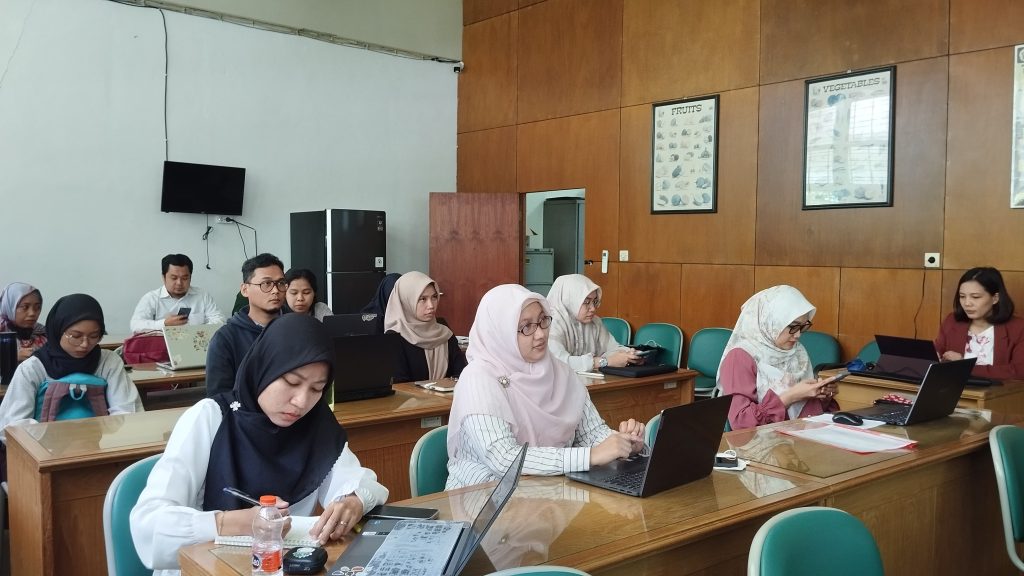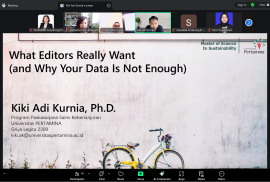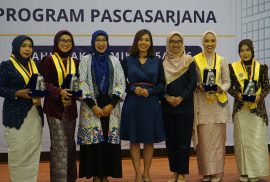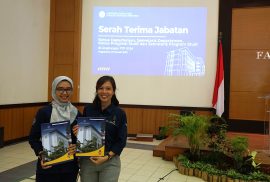
The Master’s programs in Food Science and Technology and Estate Crop Product Technology at the Faculty of Agricultural Technology, Universitas Gadjah Mada, held a three-day Thesis Progress Seminar from April 14 to 16, 2025. This event served as an important platform for master students to present the current stage of their thesis research and receive constructive input from academic mentors.
The seminar was conducted in both in-person and hybrid formats, with two parallel sessions: Class A in Room 384 and Class B in Que Room. Each session was led by a moderator—Dr. Ir. Muhammad Nur Cahyanto, M.Sc. for Class A and Dr. Widiastuti Setyaningsih, S.T.P., M.Sc. for Class B—who ensured that the discussions ran smoothly and remained engaging.
A total of 42 students took part, each supported by two academic advisors and two reviewers. Involving 28 reviewers and 25 supervisors from both within the faculty and other academic institutions, the seminar fostered a dynamic and diverse academic atmosphere. Each student was allocated 30 minutes: 7 minutes for presentation, followed by 23 minutes of discussion and feedback.
The students showed commendable preparation and enthusiasm, delivering clear and structured presentations. The lecturers responded with appreciation and insightful suggestions to help sharpen each research focus. More than just academic critique, the lecturers also offered encouragement and motivation to support the students’ continued progress. “As with many things, the first step is often the hardest,” said one of the advisors. “But once you take that step, the path forward becomes clearer. What matters most is consistent progress—small steps, taken with persistence, will eventually lead to completion.”
Beyond its academic objectives, the seminar also reflects the programs’ alignment with several Sustainable Development Goals (SDGs). These include SDG 4: Quality Education, through structured, research-driven learning; SDG 9: Industry, Innovation, and Infrastructure, by fostering innovative research in food and agricultural technology; and SDG 2: Zero Hunger, through studies that contribute to sustainable and resilient food systems.
With strong collaboration between students and academic staff, the Thesis Progress Seminar highlights the programs’ commitment to not only supporting academic excellence but also advancing research that brings meaningful impact to society.
Written by: Athiya Lainatussyifa





